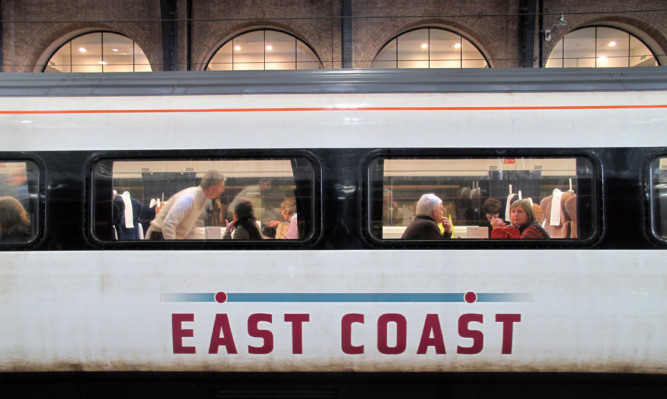
Should passengers be cheering or weeping over the new private sector east coast rail franchise?
Inter City Railways, a partnership between Stagecoach and Virgin, will run the Edinburgh to London service from March, taking over from the state which stepped in when National Express went belly-up in 2009. And they took over from GNER, another failed private operator.
So why privatise East Coast?
A recent poll found two-thirds of the public want all rail lines to be in state control; another survey found 91% passenger satisfaction with the publicly-run East Coast service and a petition to keep it that way collected 32,000 signatures. But the UK Government paid no attention.
The rail unions think Inter City’s promise to invest £140 million and put £3.3 billion into Government coffers (more than three times the amount earned under state management) is completely unrealistic.
The RMT say fares will go up. And they suggest the deal was pushed through to bolster right-wing support for the struggling Tories.
The RMT’s man in Scotland, Gordon Martin, says: “The Conservatives have waited until the eve of a General Election to sell the family silver once again.”
If’s it’s hard to believe a government could play politics with something as important as rail travel, look what happened to the Royal Mail. It was vastly undervalued and sold off too cheaply.
Now, as critics predicted, the universal service is under threat because of competition from private carriers who charge to deliver to remote areas, deliver three not six days a week and cherry-pick mail to the easiest city destinations.
That’s why state ownership works best for vital services. It avoids uncertainty and uneven levels of service.
So why is the Government transferring a well-run state-operated railway to the private sector instead of boasting about their achievement?
Well Inter City say rail journeys between London and Edinburgh will be “transformed” by 23 new services and 3,100 extra seats. It’s true new carriages and more services will make rail travel faster and more reliable. But according to travel expert Simon Calder, a “transformed” service is pushing it.
Taking a measly 13 minutes off the Edinburgh to London trip means journey times will stay at more than four hours and air travel will still dominate. The new carriages won’t arrive until 2018 and as Virgin/Stagecoach also run the West Coast line, there’s not even real competition.
What really irks is that no public sector bidders were allowed to compete for the East Coast tender. Or should I say no British bidders, as 75% of rail services across Britain ARE run by state-owned or state-backed railways from France, Germany and the Netherlands. The Dutch Government own Abellio, for example, which has won the Scotpail franchise.
Foreign governments are making millions running public services in Britain which benefit their own taxpayers.
Large parts of Britain’s energy, transport and utility networks are run by companies owned by European governments, meaning foreign exchequers reap dividends while UK customers struggle with increasing fares and bills.
An investigation found overseas taxpayers earned £1 billion from companies making profits from UK citizens in the last two years alone.
It looks as if the Tory Government is happy to have state ownership of railways so long as it isn’t the British state.

Enjoy the convenience of having The Sunday Post delivered as a digital ePaper straight to your smartphone, tablet or computer.
Subscribe for only £5.49 a month and enjoy all the benefits of the printed paper as a digital replica.
Subscribe